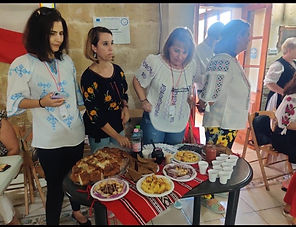
PORŢI DESCHISE
2022-1-RO01-KA122-SCH-000079815
Proiect finanţat prin programul Erasmus+ al Uniunii Europene



_jpegQWERT.jpeg)

Spain, VALENCIA October 24TH -28th, 2022
ConnectEdu: INFORMATION AND COMMUNICATION TECHNOLOGIES (ICT) FOR NOWADAYS CLASSES

FACING DIVERSITY: INCLUSIVE EDUCATION STRATEGIES FOR STUDENTS WITH FEWER OPPORTUNITIES
24-30.10.2022, Senglea( L-Isla) Malta
AGENDA CURSULUI:
1 .INTERCULTURAL SETTINGS. Connection between culture and inclusion. Education For All. A global commitment. Multicultural or intercultural education. Show me your class and I will tell you who you are
2 INTRODUCTION TO INCLUSION. A clear, basic understanding of exclusion and inclusion. Principles of inclusive education. Aims and objectives of inclusive education. What means a teacher as inclusive promoter?
3. FEWER OPPORTUNITIES: legal framework; learners characteristics, identification, definitions, etymology, developmental consequences, interventions and prevention; Segregation, integration, inclusion: Inclusive Education Versus Special Education debate
4. INCLUSIVE EDUCATION: The research-basis for inclusive education. Need and importance. The basic elements of inclusive education; Reforms in curriculum. Creating an inclusive learning environment: how to deal with Stereotype threat
THE VALUE OF INCLUSIVE EDUCATION: The importance of inclusive education; The basic elements of inclusive education; The support of inclusive education
5. Different ways in which INCLUSIVE EDUCATIONAL PRACTICES build a school's capacity to educate all learners effectively: Coaching models that increase students’ engagement.
6. STRATEGIES TO IMPROVE INCLUSIVE EDUCATION. How to foster students’ inclusion, tolerance and intercultural awareness through non-formal, informal and experiential learning activities. Non formal education tools aimed at social inclusion. Designing lessons and activities to support increasing diversity in contemporary classrooms Strategies to involve in school activities students in risk of exclusion. Activities based on a very good overview and practical experience of tools through individual work, working groups and collective work regarding social inclusion.
7. TECHNIQUES TO SUPPORT SOCIAL INCLUSION. Conflict in classroom. Management styles of conflict. Mediation and negotiation tools in the fight against exclusion of people with fewer opportunities.
Planning the follow up: future projects together. Course evaluation. Releasing of official course certifications and Europass Mobility documents.











